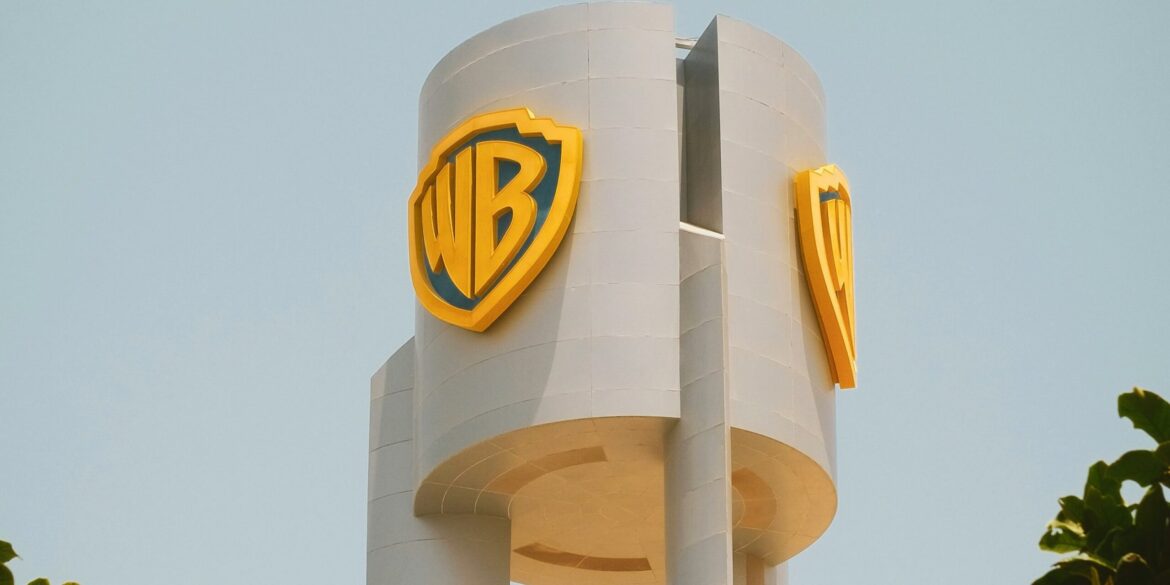Warner Bros. Discovery has unveiled plans to break up into two distinct companies, a decision spurred by growing shareholder criticism over executive compensation and the company’s financial performance. The move, announced recently, signals a strategic shift aimed at improving operations and restoring investor confidence. One of the new entities will focus primarily on streaming and film studios, while the other will be dedicated to global networks, including prominent brands like CNN, TNT Sports, and other established media properties.
The decision to split comes at a time when Warner Bros. Discovery is facing significant pressure from its shareholders. The company’s stock has dropped by 7% year-to-date, reflecting widespread investor concerns regarding the direction in which the conglomerate is headed. Critics have pointed to excessive executive pay as a central issue, claiming that the company’s leadership has not done enough to address its declining stock performance and overall financial health.
In a statement outlining the rationale behind the restructuring, Warner Bros. Discovery emphasized that the split would allow for greater operational focus, making each company better suited to tackle the specific demands of their respective markets. “By creating two distinct entities, we believe we can better serve the needs of our audiences and shareholders while maximizing the value of our assets,” said David Zaslav, CEO of Warner Bros. Discovery. Zaslav, who has faced significant scrutiny over his compensation package, reiterated that this separation would streamline the company’s operations and ensure better alignment with investor interests.
The planned split will divide Warner Bros. Discovery’s media empire into two entities: one focusing on content creation and streaming services, the other on the operation of its linear networks and sports assets. While Warner Bros. Discovery has not yet disclosed the specifics of the financial structure, the decision is expected to reshape the landscape of global media ownership. For example, Warner’s highly profitable film and television studios, as well as its subscription-based services like HBO Max and Discovery+, will be part of the streaming-focused entity. The other entity will oversee a range of established brands like CNN, TNT, TBS, and the company’s vast portfolio of sports broadcasting rights.
The restructuring comes after months of shareholder dissatisfaction regarding the company’s leadership, particularly following Zaslav’s multi-million-dollar compensation package. Despite overseeing a series of high-profile acquisitions and integrations, such as the merger of Warner Media and Discovery, Inc., many shareholders have questioned whether the company is maximizing the potential of its diverse media assets. Additionally, the company’s stock price has failed to recover from the downturn it experienced in the wake of the merger, adding to the growing unease among investors.
The media industry has seen a series of similar corporate splits and mergers in recent years, as companies attempt to adapt to the ever-changing dynamics of digital streaming, media consumption, and advertising. Industry experts view Warner Bros. Discovery’s restructuring as a bold attempt to address these shifting trends by narrowing its focus on the growing streaming market, while also consolidating the more traditional media networks. The company’s streaming services, which compete with rivals like Netflix, Amazon Prime Video, and Disney+, are seen as a critical part of its future growth, while its established broadcast networks are facing increasing competition from digital platforms and cord-cutting trends.
At the heart of the split, however, is the ongoing challenge Warner Bros. Discovery faces in balancing the needs of its legacy media assets with the demands of a rapidly evolving digital landscape. While the move to split into two companies may offer more clarity in terms of operational focus, it also raises questions about the future of the company’s vast and varied holdings. The potential for further divestitures or strategic realignments remains a key topic of discussion among investors and industry analysts.
Despite the challenges, Warner Bros. Discovery remains a dominant player in the global entertainment industry, with a portfolio that spans across film production, television broadcasting, news networks, and digital streaming. However, the company’s ability to adapt to changing market conditions will be critical in determining whether the proposed restructuring succeeds in reviving investor confidence and boosting its financial performance in the long term.
While the details of the split are still being worked out, it is clear that Warner Bros. Discovery is attempting to reposition itself to better meet the demands of both its consumers and shareholders. As the media landscape continues to shift, the company’s success or failure in executing this restructuring could have lasting implications for the future of traditional media companies in the digital age.

